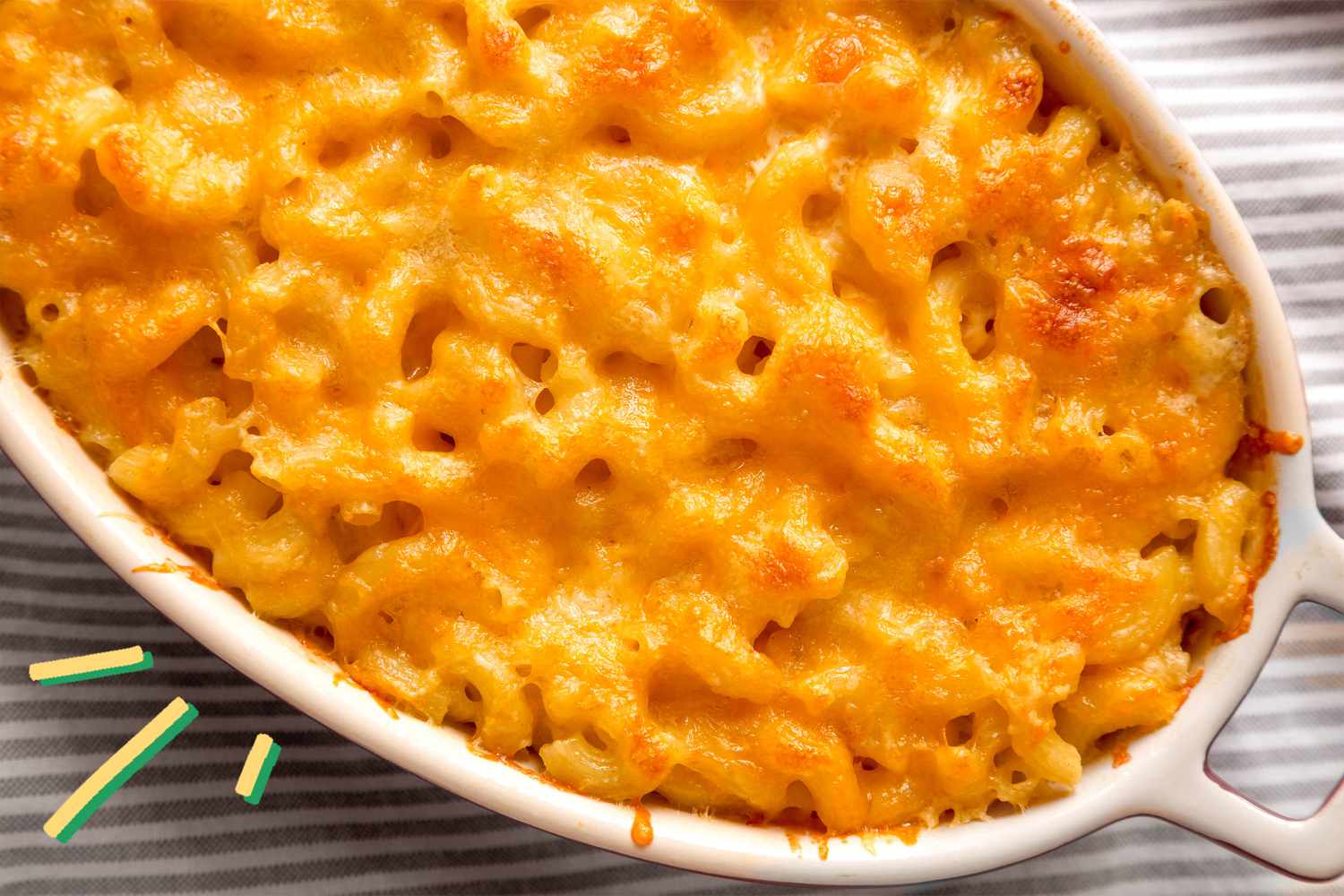:max_bytes(150000):strip_icc():format(jpeg)/Simply-Recipes-1-Baked-Macaroni-And-Cheese-LEAD-01-578cb8093c5a49bbb5520d9b6752474b.jpg)
Whenever I make mac and cheese for a family gathering or social event people often ask me for the recipe. It’s hard to make bad mac and cheese. Pasta + cheese + butter is usually a win, no matter how it comes together. That said, I do consider myself a bit of a connoisseur. There is one surprising ingredient I always add to my mac and cheese that takes it from good to great: Dijon mustard.
Simply Recipes / Getty Images
I notice that when I share the recipe, folks seem unphased by the copious amounts of cheese I use but are a little taken aback by the mustard. I get it, it’s a relatively assertive flavor that doesn’t exactly seem to fit with melty cheese, but the acidity in the mustard helps cut through the richness. Also, just like Dijon mustard binds together a vinaigrette, I think it helps to keep the cheese sauce stable as it bakes so that it doesn’t curdle. No one wants a broken and greasy mac and cheese.
Dijon mustard originated in a town in the Burgundy region of France and is known for its unique flavor that comes from using dry white wine. Unlike the vinegar-heavy bite of yellow mustard, Dijon is a bit milder and less sweet. When added to mac and cheese, Dijon doesn’t make the cheese sauce taste like mustard, it simply balances things out and highlights the flavor of the cheese. It’s like when you add coffee to chocolate cake, which doesn’t make the cake taste like coffee. It makes it taste more chocolatey.
Simply Recipes / Ciara Kehoe
How To Add Dijon Mustard to Your Mac & Cheese
Most cheese has a ton of salt, so you don’t need to go overboard with it—up to a teaspoon of kosher salt (or half a teaspoon of table salt) is enough for a pound of cheese. Apart from the salt, you do need to make sure the sauce is full of flavor. That’s where Dijon mustard comes in.
I add a tablespoon of Dijon mustard when the shredded cheese goes into the béchamel (the butter, flour, and milk mixture). If you’re feeling skeptical, start with two teaspoons of Dijon and add more to taste after all the cheese has melted into the sauce.
A few drops of hot sauce or cayenne, and a pinch of nutmeg helps too. These additions will help you to build dimension beyond just cheese and salt.
3 Mac and Cheese Tricks I Always Follow
Now that I’ve hopefully convinced you to add a bit of Dijon to your next batch of mac and cheese, I leave you with three easy tips for making the best every time:
- Use a Good Blend of Cheeses: When assembling the perfect mac and cheese, think of it a little like a good cheese board: you want something sharp, something creamy, something salty, and something nutty. I like to use mostly cheddar with some gruyere, Parmigiano Reggiano, and fontina or mascarpone for good measure.
- Butter Is Your Friend: Now is not the time to shy away from butter—don’t use less than what the recipe calls for or swap it with say, olive oil. And if you want to add breadcrumbs on top of your mac and cheese, toast them in butter first. Then get extra fancy and add some fresh thyme or oregano too.
- Just Say No to Elbows: There is a time and a place for every pasta shape—skip the elbows when making mac and cheese. Since they are so small, they have a tendency to overcook and become mushy. I prefer larger pasta shapes where the cheese sauce can get into every nook and cranny. Cavatappi is my favorite. It holds its shape without becoming mushy when baked.
